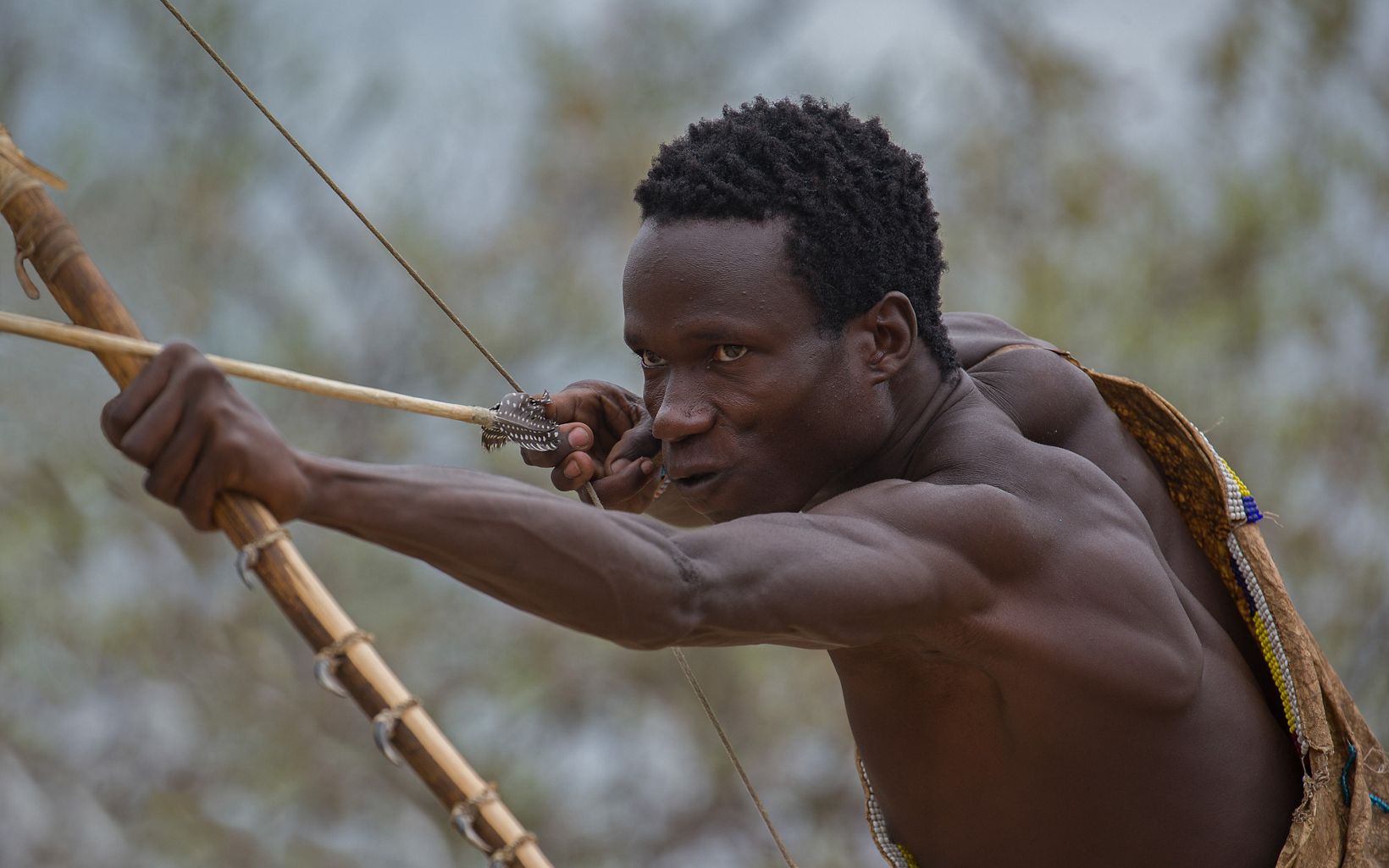Tucked away in the dusty savannahs near Tanzania’s Lake Eyasi lives one of the last true hunter-gatherer tribes on Earth, the Hadzabe.
In a world driven by technology, timelines, and towering cities, the Hadzabe live without clocks, currency, or concrete walls. Their lives flow with the rhythm of the sun, the seasons, and the secrets whispered by the trees.
Waking with the sun and sleeping under starlit skies, the Hadzabe do not stay in one place for long.
Their shelters, small dome-like huts made of grass and branches, are built in a matter of hours and left behind without sentiment when the land grows quiet.
Their home is not a structure, but a connection: to nature, to each other, and to the land that sustains them.
Their language is as remarkable as their way of life. Made up of clicks, pops, and melodic tones, the Hadzabe tongue is unlike any other in East Africa.
It is a language born from the earth itself—alive, expressive, and passed on entirely by mouth.
Elders are living libraries, preserving generations of wisdom through story, song, and memory.
There are no kings or chiefs among the Hadzabe.
Power is shared, and decisions are made together. Everyone has a voice, whether young or old, man or woman.
In their world, leadership is temporary and earned through wisdom or skill, not inherited or enforced.
Each day, men rise early, bows in hand, to hunt.
Their weapons are crafted from local wood, strung with animal sinew, and tipped with a powerful plant-based poison.
They track game silently—birds, antelope, even baboons—reading the land like a book.
Meanwhile, the women roam nearby areas, digging for nutrient-rich tubers, gathering berries, and collecting the pulp of the baobab fruit—nature’s own vitamin powerhouse.
When a kill is made, it is shared with the entire group.
There is no hoarding or hiding, no storing for tomorrow. What the land gives today is enough.
Meals are cooked over open fires and eaten with laughter, stories, and a quiet reverence for the hunt and the harvest.
Children, untethered by classrooms, learn by doing.
They imitate the elders, follow in the footsteps of their parents, and discover through play.
Every rock, tree, and insect becomes a lesson.
Formal education may be absent, but survival skills, environmental knowledge, and emotional intelligence are learned at a level many modern societies have lost.
Spirituality among the Hadzabe is not tied to temples or scriptures but to the natural world.
Some trees are sacred, and certain caves are believed to be inhabited by spirits.
Their ceremonies are simple yet deeply moving—songs to welcome the rain, dances to celebrate a hunt, or rituals to mark the seasons’ turning.
There is no structured religion, only a quiet, enduring respect for the life force in all things.
Their clothing is functional and often made from animal hides, though modern garments occasionally find their way into the tribe through trade.
On special days, they adorn themselves with beads, feathers, or natural dyes—symbols of identity, beauty, and celebration.
Yet, like the acacia trees on the edge of the savannah, the Hadzabe stand in fragile balance.
Modern pressures threaten their way of life. Farmers push into their land, tourists come snapping photos, and government programs encourage them to settle and assimilate.
But the Hadzabe have resisted, not out of stubbornness, but out of a fierce loyalty to a way of life that has served them for thousands of years.
They are not relics of the past.
They are reminders—living, breathing reminders—of what it means to live in harmony with the earth.
In a world that often races ahead, the Hadzabe walk with intention, guided not by what they can own, but by what they can share and protect.
To spend a day with them is to hear the heartbeat of the wild.
To listen to their stories is to remember our own forgotten roots.
And to watch them live—free, fearless, and deeply connected—is to understand that progress doesn’t always mean moving forward. Sometimes, it means looking back.
